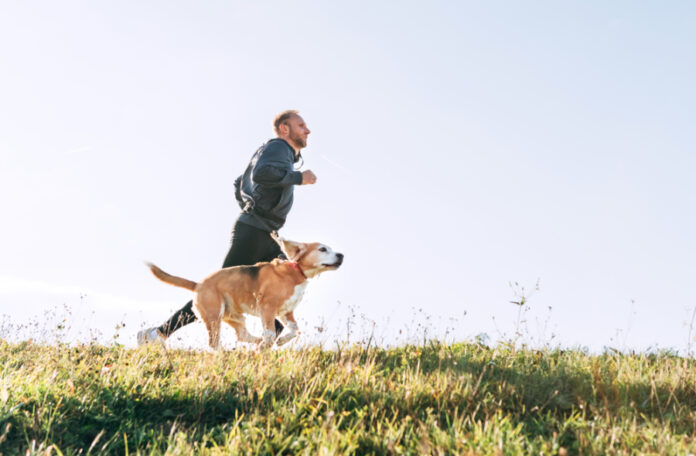Active Folks Have Active Dogs, Says New Study

Do you jog with your dog? New research from the University of Guelph has found that dog guardians who exercise regularly tend to ensure their canine companions also get exercise. That in turn influences whether or not people believe their dogs are a healthy weight.
Led by researchers in the university’s Department of Animal Biosciences within the Ontario Agricultural College (OAC), the study is believed to be the first large-scale international survey to demonstrate a relationship between the exercise routines of people and their dogs, as well as folks’ perceptions of their dogs’ health.
According to lead author and PhD candidate, Sydney Banton, the study is important, given that 40% of dogs are overweight, and that many dog guardians are unaware of their four-legged friends’ unhealthy weights.
Along with animal biosciences professor and lead author, Dr. Kate Shoveller, as well as colleagues from OAC and the Ontario Veterinary College, Banton analyzed results from a survey of almost 3,300 dog guardians in France, Germany, the United Kingdom, Canada and the United States. They asked people about their own diets and exercise routines as well as their dogs’, along with their perceptions of their dogs’ weight.
- Those who reported spending four or more days per week vigorously exercising were 2.8 to 3.5 times more likely to believe their dogs were at an ideal body weight than those who did not vigorously exercise. Respondents who reported their dogs regularly performed vigorous exercise (playing ball, swimming, agility) were 1.8 times more likely to believe their dogs were at an ideal weight.
- Conversely, dogs that received less than 30 minutes of exercise per day had guardians who were much more likely to spend less time moderately exercising themselves.
- About 13% of those surveyed thought their dogs’ weight was not ideal or had someone, such as a veterinarian, tell them their dogs were overweight. These people were also more likely to restrict their dogs’ food intake to control weight.
The results of this study, which appears in the journal PLOS ONE, highlight the need for more exercise to avoid weight gain in dogs.




